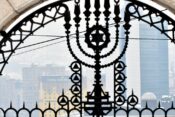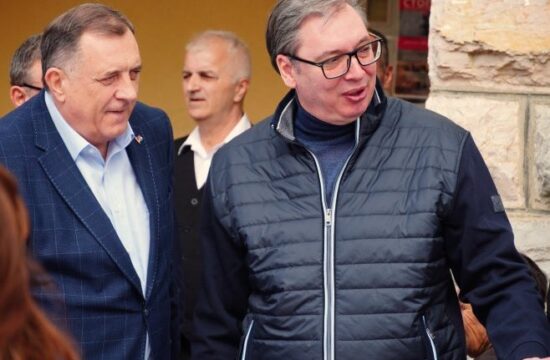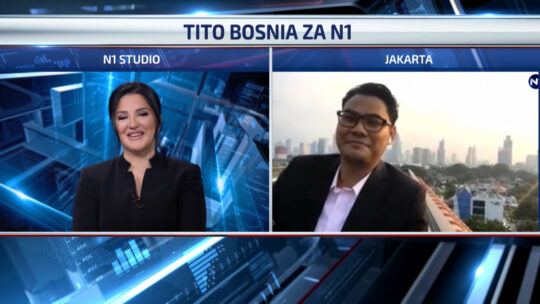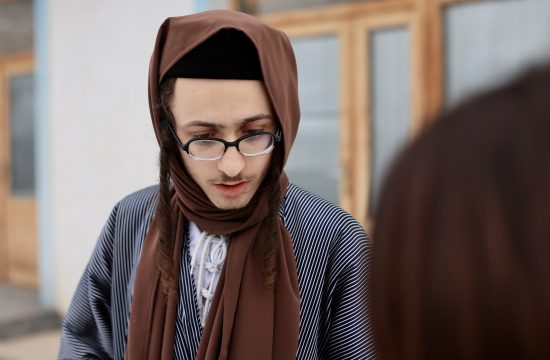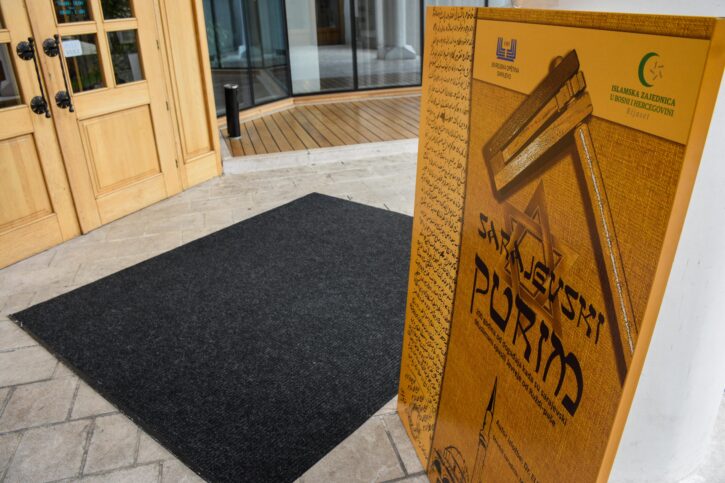
The story behind the Sarajevo Purim is one of civic responsibility, courage, Abrahamic unity and neighbourly solidarity which must be cherished and passed onto future generations, the head of Bosnia’s Islamic Community said in a message which was read out at a conference under the name ‘Coexistence of Jews and Muslims in Bosnia and Herzegovina: 200 Years of the Sarajevo Purim’ on Thursday.
“Those are the values Bosnia was built upon and without them, there is no us, our past, our present or our future,” his message said.
The conference was organised by the Islamic Community and the Jewish Community in Bosnia and supported by the Turkish Agency for Cooperation and Coordination (TIKA). The aim was to show the good relations between Muslims and Jews in the country through examples and, to promote coexistence between the two groups as an integral part of Bosnia’s cultural heritage.
The story behind the Sarajevo Purim dates back to 1819 when the Ottoman Vali (governor) Mehmed Ruzdi Pasha imprisoned the Hahambasha (Jewish religious leader) Moshe Danon and ten other prominent Jews and threatened to execute them if the Jewish community does not pay him 500 sacks of coins within two days.
Sarajevo’s Islamic leaders were outraged with the Vali's actions.
A day later, the city's Muslims organised themselves, broke into the prison and freed the captives.
Since then, Jews in the country mark the Sarajevo Purim yearly, on every 2 of November.
Advisor for Culture and Religion at Bosnia’s Jewish Community, Eli Tauber, explained that the story was immortalised by Zeki Effendi, otherwise known as Moshe ben Rafael Attias, a Bosnian Jew became a scholar of the Islamic faith.
Tauber also put together an exhibition based on materials from the Gazi Husrev-beg Library, the Archives of the Jewish Community, the Archives of the Central Bosnia Canton and the Ottoman State Archive in Istanbul.
He explained that of the about 100 purims, the Sarajevo Purim is special because Sarajevo’s citizens, Muslims, saved Jews from oppression.
According to the head of Bosnia’s Jewish Community, Jakob Finci, the story “goes to show and prove that there wasn’t always hate in these parts and that we didn’t always wait for opportunities to get some revenge, but that we lived well, helped each other, we proved that it is possible.”
“I think it is very important today when the tensions in the world are high, when the relations between the Muslim world and others are completely different, when there is a terrible rise in Islamophobia everywhere, to prove that it is possible to have a normal life. If the Jews in Bosnia and Herzegovina can live normally with Muslims, why can't everyone else in the world do it?” he asked.

Professor at the Faculty of Islamic Sciences in Sarajevo, Enes Karic, said that the Sarajevo Purim marks “a sad event with a happy outcome.”
Karic described how friends of the Moshe Danon went to Muslims sitting in coffee shops and tea shops and asked them for help, and how the Sarajevans got together and saved the Jews from the prison.
The head of Bosnia’s Islamic Community, Husein Kavazovic, could not make it to the conference but expressed strong support for it. He sent a message which was read ut by Islamic Community official Razim Colic.
“Bosnian Muslims and Bosnian Jews are one body,” Kavazovic wrote. “God’s word tells us since humans were created that there are only good and bad people and that origin or social status are not what we should value people by.”
Both Bosnia’s Muslims and Bosnia’s Jews have suffered and experienced attempts to annihilate them, the Islamic leader wrote.
“At the same time, both peoples have also shown how to not lose hope in humanity despite the great evil we were exposed to, both in our distant and recent past, and how to fight for survival.”
“Today, when the evil of antisemitism and anti-Muslim hatred and Islamophobia are gaining momentum in our environment and across Europe and the world, we must renew our vow that we will remain good neighbours to each other and watch over each other, as we have done in the past,” Kavazovic wrote.
“There were times when evil people controlled processes, but that only happened because good people were passive,” he added.
The head of TIKA’s Office for the Middle East and Africa, Bulent Korkmaz, also attended the exhibition and the conference.
In an interview with the Anadolu Agency, he expressed happiness and satisfaction with the fact that his company supported the conference, which he called a symbol of tolerance, coexistence and multiculturalism.
“TIKA is an agency that operates in 170 countries, has offices in 60 countries and implements about 2,000 projects a year, much of them related to maintaining peace,” Korkmaz said.
He said that TIKA recently financed the restoration of the tombstone of Zeki Effendi Rafaelovic, which contains writing in three languages – Bosnian, Hebrew and Ottoman Turkish.


